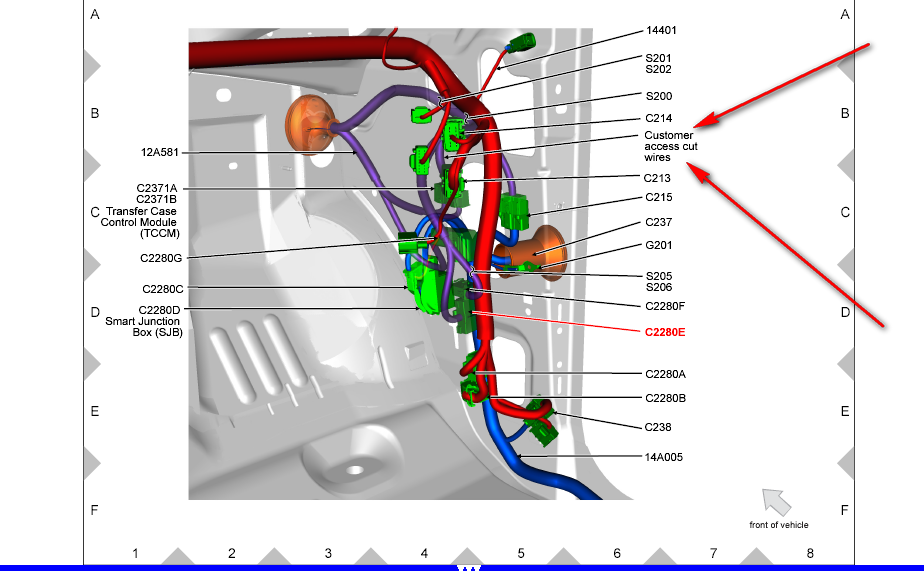When it comes to customizing the electrical system in your Ford F350, having a clear understanding of the upfitter switch wiring diagram is crucial. The Ford F350 upfitter switch wiring diagram provides a visual representation of the electrical connections and functions of the upfitter switches in your vehicle. Whether you are adding additional lighting, a winch, or any other electrical accessory, having a detailed wiring diagram can help you navigate the installation process with ease.
Importance of Ford F350 Upfitter Switch Wiring Diagram
- Allows you to understand the electrical connections and functions of the upfitter switches
- Helps you plan and execute custom electrical modifications with precision
- Ensures proper installation and prevents electrical issues down the line
Reading and Interpreting the Wiring Diagram
Reading and interpreting the Ford F350 upfitter switch wiring diagram may seem daunting at first, but with a little guidance, you can easily decipher the information provided. The wiring diagram typically includes color-coded wires, symbols, and labels that indicate the various components and connections. Here are a few tips to help you read and interpret the diagram effectively:
- Refer to the key or legend provided to understand the symbols and abbreviations used
- Follow the flow of the wiring diagram from one component to another to trace the electrical connections
- Pay attention to wire colors and their corresponding functions to ensure proper connection
Using Upfitter Switch Wiring Diagram for Troubleshooting
When faced with electrical issues in your Ford F350, the upfitter switch wiring diagram can be a valuable tool for troubleshooting. By referencing the diagram, you can identify the specific electrical components involved, trace the wiring path, and pinpoint potential areas of concern. Here are a few ways in which the wiring diagram can aid in troubleshooting:
- Locate and inspect the relevant upfitter switches and their corresponding connections
- Check for continuity, voltage, and resistance at key points in the electrical circuit
- Compare the actual wiring configuration to the diagram to identify any discrepancies
When working with electrical systems and using wiring diagrams, safety should always be a top priority. Here are some important safety tips and best practices to keep in mind:
- Always disconnect the battery before working on the electrical system to prevent accidental shocks
- Use insulated tools and wear protective gear, such as gloves and goggles, when handling electrical components
- Double-check your connections and wiring before re-energizing the system to avoid short circuits or other hazards
Ford F350 Upfitter Switch Wiring Diagram
Upfitter Switch Wiring Diagram F350 Ford

2012 F350 Upfitter Switch Wiring Diagram

Understanding The 2022 F350 Upfitter Switch Wiring Diagram – Moo Wiring

2014 F350 Upfitter Switch Wiring Diagram – FordWiringDiagram.com

2013 F350 Upfitter Switch Wiring Diagram – Wiring Diagram Pictures

2013 F350 Upfitter Switch Wiring Diagram
